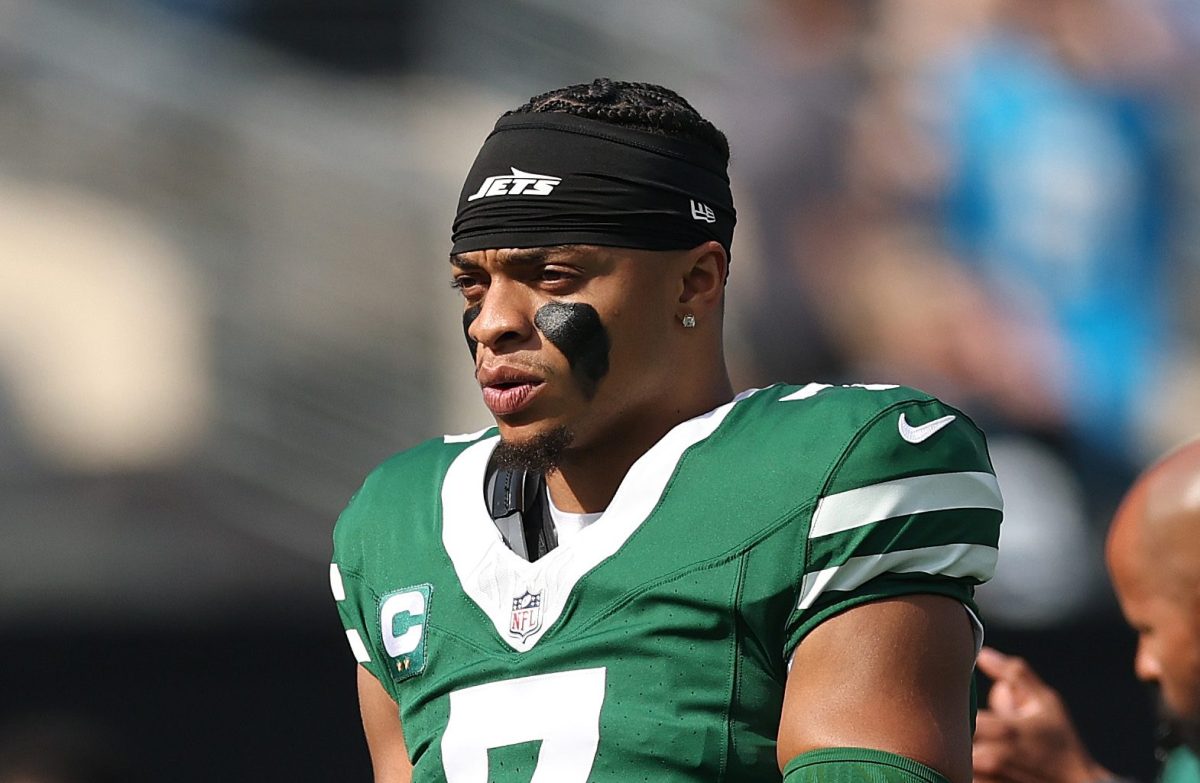For many years, the New York Jets have been stuck in purgatory, with their fans suffering through season after season of disappointment. They haven’t made the playoffs since 2010, and finding a legitimate franchise quarterback has continued to elude them. The last time their starting quarterback made the Pro Bowl was in 2008, when an aging Brett Favre threw for 3,472 yards and 22 touchdowns—numbers that were already below par for him.
A strong argument could be made that the Jets haven’t had a true franchise quarterback since the days of Joe Namath in the late 1960s and early 1970s. Now, with Justin Fields running their offense and playing at a subpar level, the team enters Sunday’s game against the surging Baltimore Ravens with a 2-8 record. They are currently ranked 26th in scoring, 28th in total yards, and dead last in passing yards.
At this point, Fields clearly isn’t the player many thought he could become after starring at Ohio State University.
Usually, the one silver lining for a team enduring a tough season like New York’s is the hope of securing a very high draft pick and possibly drafting a franchise savior. However, as multiple NFL executives noted in a recent article by Jeff Howe of The Athletic, the 2026 draft won’t exactly be rich with potential-laden signal-callers.
“Nobody is playing the position well enough to be like, ‘That dude can take over my franchise,’” said an NFL team executive who spoke anonymously to provide candid insight.
Just a few months ago, many expected Arch Manning of Texas Tech University—the nephew of Peyton and Eli Manning—to declare for the 2026 draft. But it now appears likely that he will remain in school next fall, leaving what looks to be a very underwhelming quarterback class available in April.
“I don’t love any of [the quarterbacks] right now,” said a second executive. “We’re trying to grasp onto somebody because there isn’t anybody, and it’s such a flavor of the week. Good luck right now.”
The 2024 draft class was rich in quarterbacks whom teams coveted, including Caleb Williams, Jayden Daniels, and Drake Maye—the first three signal-callers taken. This year’s draft was less enticing in terms of quarterback talent, and 2026 could be even worse.
“Overall, we were hoping it was going to be better than last year,” a third executive admitted. “There was a hangover from such a good class two years ago. There were more projected quarterbacks coming into this year, but the expectations of the higher-end players never really materialized. Some of the younger guys are leaning toward going back because they haven’t played well and are making the NIL money. There is now, at least at times, reason for players to stay in school for an additional year rather than come into the league and play for a team that won’t have the infrastructure to help them succeed right away.”
It certainly seems like the Jets lack the necessary infrastructure to nurture a young quarterback and help him reach his full potential. In recent years, the organization drafted Geno Smith and Sam Darnold—both of whom struggled early in their Jets careers only to blossom later on with other teams.
Perhaps the first step New York needs, before finding its messiah quarterback, is a regime change that brings vision, leadership, and a comprehensive plan of action to the struggling franchise. Without that foundation, it will remain difficult for any quarterback—no matter how talented—to succeed in the Big Apple.
https://www.newsweek.com/sports/nfl/jets-could-face-worse-qb-situation-in-2026-11054927


